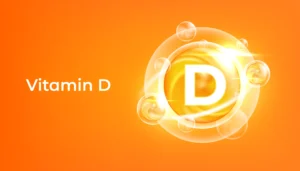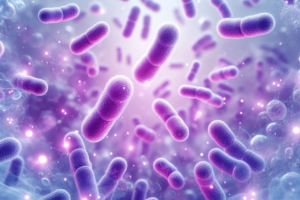Artipep contains Artichoke (cynara scolymus) extract and is indicated in the management of dyspepsia or indigestion. Artichoke (cynara scolymus) is a round perennial plant which is native to southern Europe, Canary islands and northern Africa. It was first cultivated by ancient Romans and Greeks and now is grown worldwide. Artichoke leaves are dried, before being used in herbal remedies. The leaves are mainly used for dyspeptic problems (such as indigestion or irritable bowel syndrome, disturbed digestion) and also used to prevent the recurrence of gallstones.The prevalence of dyspepsia/ indigestion is around 20-30% worldwide.
Artichoke is a member of the Asteraceae, or daisy family and its extract is used worldwide to develop nutraceutical products for management of indigestion. The extract from nutrient dense leaves has a long medicinal history. It is one of the oldest used medicinal plants, as it is depicted in ancient Egyptian drawings and was used by the ancient Greeks and Romans to aid in digestion.3,9
Artichoke leaves help to increase bile production and have been proven to decrease lipid levels, indicating that they may be useful in preventing atherosclerosis.
The Benefits
Artichoke leaf extract has been used for various purposes, including chronic albuminuria, hyperlipidemia, alcohol induced hangovers, irritable bowel syndrome (IBS), jaundice, liver dysfunction and even snake bites. Besides indigestion, artichoke extract may also help people who suffer from dyspepsia (heartburn), bloating, and nausea.
Artichoke relieves digestive problems quickly and reliably. It has an antispasmodic effect which further adds to the beneficial effects for better digestion.
The Science
There has been scientific exploration to confirm and better understand the traditional medicinal uses of artichoke leaf extract in recent years. The high concentration of cynarin in artichoke helps to manage cholesterol and also maintains digestive health, as cynarin stimulates bile production, which is responsible for digesting all fats and with vitamin absorption from food. This was reported in a randomised placebo-controlled double-blind cross-over pilot study conducted in 1994 with 20 participants.
In a 2004 study conducted at the University of Reading in the United Kingdom, 208 adults who were experiencing dyspepsia and IBS were observed as they daily utilized artichoke leaf extract. The results showed a 26% reduction in the incidence of IBS among the participants by conclusion of a two months trial. There was also a very meaningful, self reported improvement in the bowel patterns. Along with this there was around 41% reduction in the symptoms of dyspepsia after treatment.
Key features
- Maintains digestive health by boosting bile production as well as exerting an antispasmodic action and thereby alleviates symptoms of indigestion
- Activates the body’s digestive system within 30 minutes
- Clinically validated
- No relevant side effects
- Available in form of vegetarian capsule
Reference:
- Kulza M, Adamska K, Seńczuk-Przybyłowska M, Woźniak A, Wachowiak A, Miechowicz I, Horoszkiewicz M, Nowak G, Florek E. Artichoke–herbal drug. Przeglad Lekarski. 2012 Jan 1;69(10):1122-6.
- Costabile A, Kolida S, Klinder A, Gietl E, Bäuerlein M, Frohberg C, Landschütze V, Gibson GR. A double-blind, placebo-controlled, cross-over study to establish the bifidogenic effect of a very-long-chain inulin extracted from globe artichoke (Cynara scolymus) in healthy human subjects. British journal of nutrition. 2010 Oct;104(7):1007-17.
- Salem MB, Affes H, Ksouda K, Dhouibi R, Sahnoun Z, Hammami S, Zeghal KM. Pharmacological studies of artichoke leaf extract and their health benefits. Plant foods for human nutrition. 2015 Dec;70(4):441-53.
- Marakis G, Walker AF, Middleton RW, Booth JC, Wright J, Pike DJ. Artichoke leaf extract reduces mild dyspepsia in an open study. Phytomedicine. 2002 Jan 1;9(8):694-9.
- Kirchhoff R, Beckers CH, Kirchhoff GM, Trinczek-Gärtner H, Petrowicz O, Reimann HJ. Increase in choleresis by means of artichoke extract. Phytomedicine. 1994 Sep 1;1(2):107-15.
- Bundy R, Walker AF, Middleton RW, Marakis G, Booth JC. Artichoke leaf extract reduces symptoms of irritable bowel syndrome and improves quality of life in otherwise healthy volunteers suffering from concomitant dyspepsia: a subset analysis. Journal of Alternative & Complementary Medicine. 2004 Aug 1;10(4):667-9.
- Costabile A, Kolida S, Klinder A, Gietl E, Bäuerlein M, Frohberg C, Landschütze V, Gibson GR. A double-blind, placebo-controlled, cross-over study to establish the bifidogenic effect of a very-long-chain inulin extracted from globe artichoke (Cynara scolymus) in healthy human subjects. British journal of nutrition. 2010 Oct;104(7):1007-17.
- https://www.hilma.co/blogs/the-cabinet/the-benefits-and-science-of-artichoke-leaf
- https://www.acupuncturetoday.com/herbcentral/artichoke_leaves.php
- Giacosa, A., Guido, D., Grassi, M., Riva, A., Morazzoni, P., Bombardelli, E., Perna, S., Faliva, M.A. and Rondanelli, M., 2015. The effect of ginger (Zingiber officinalis) and artichoke (Cynara cardunculus) extract supplementation on functional dyspepsia: a randomised, double-blind, and placebo-controlled clinical trial. Evidence-Based Complementary and Alternative Medicine, 2015.







